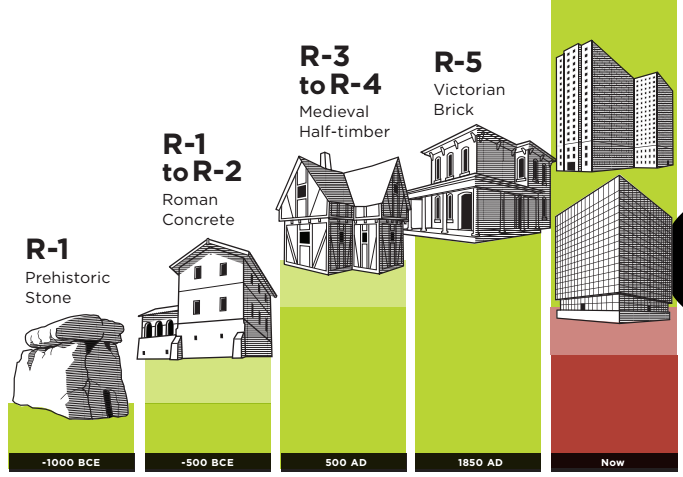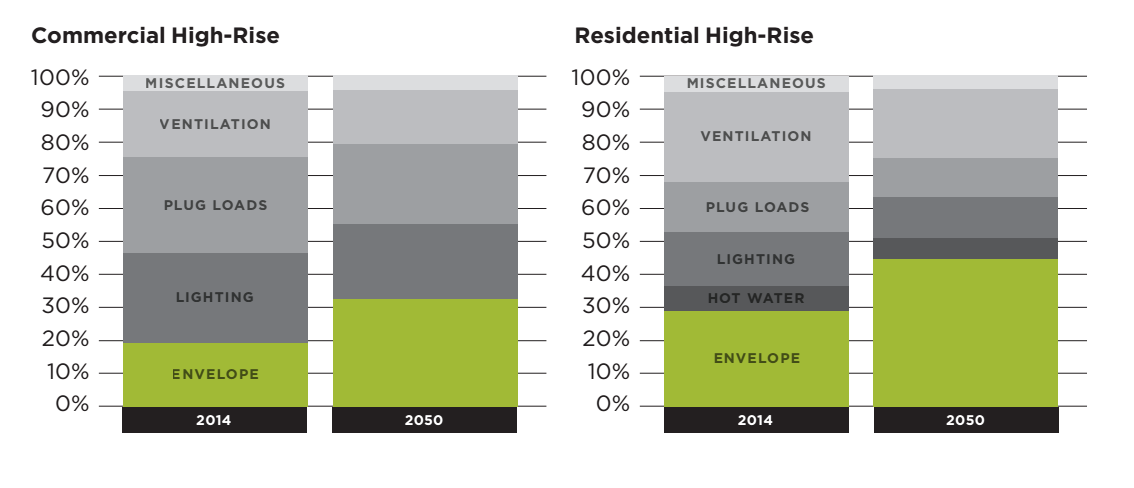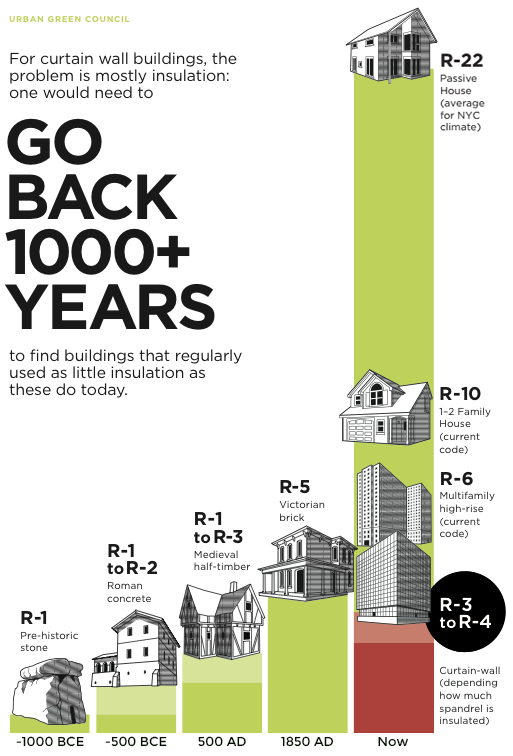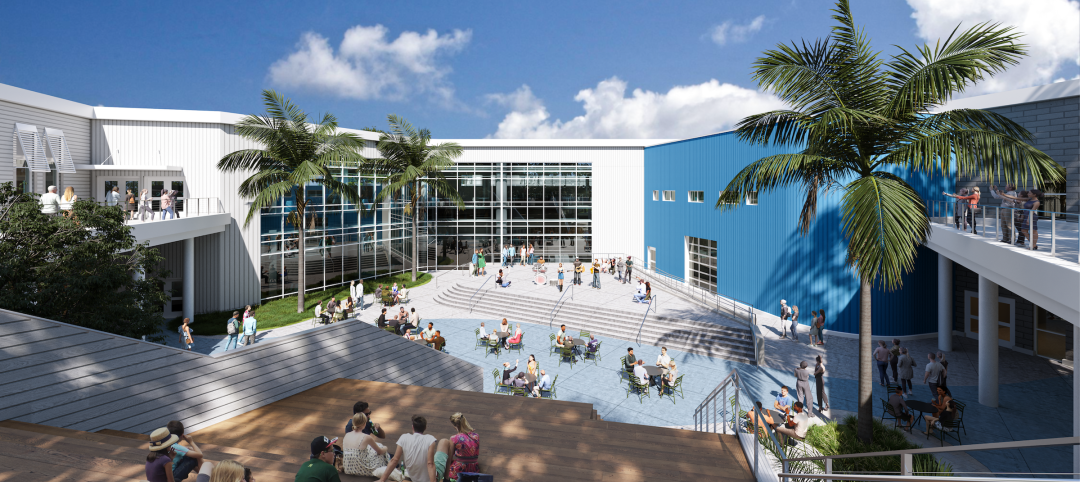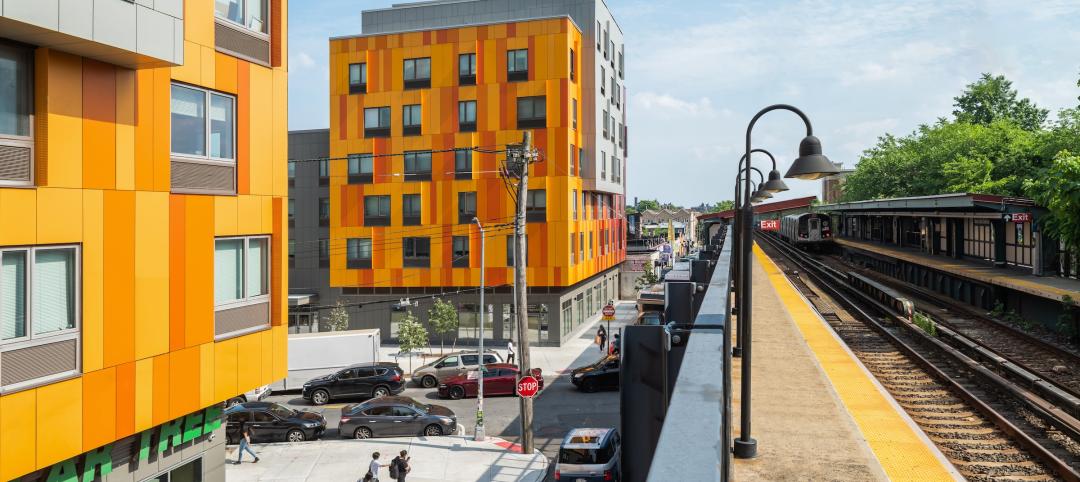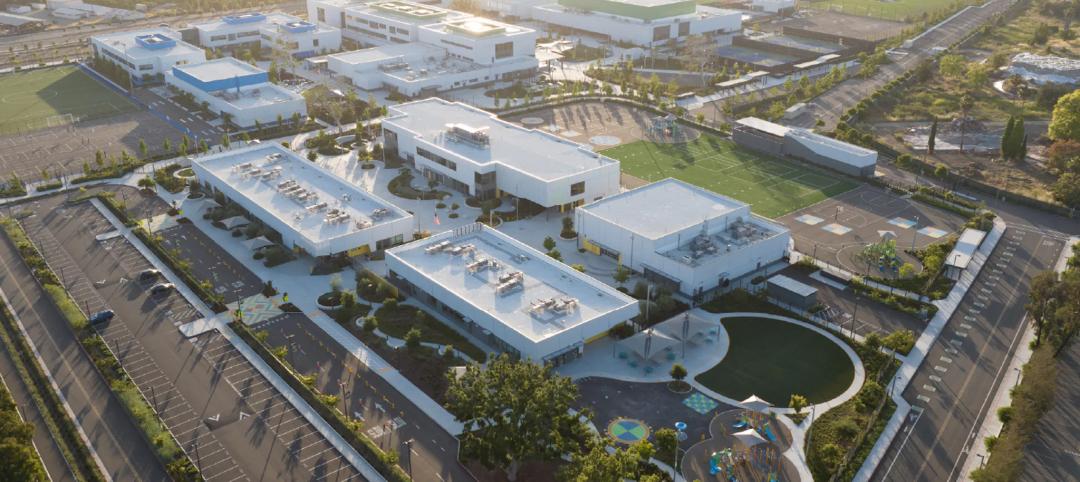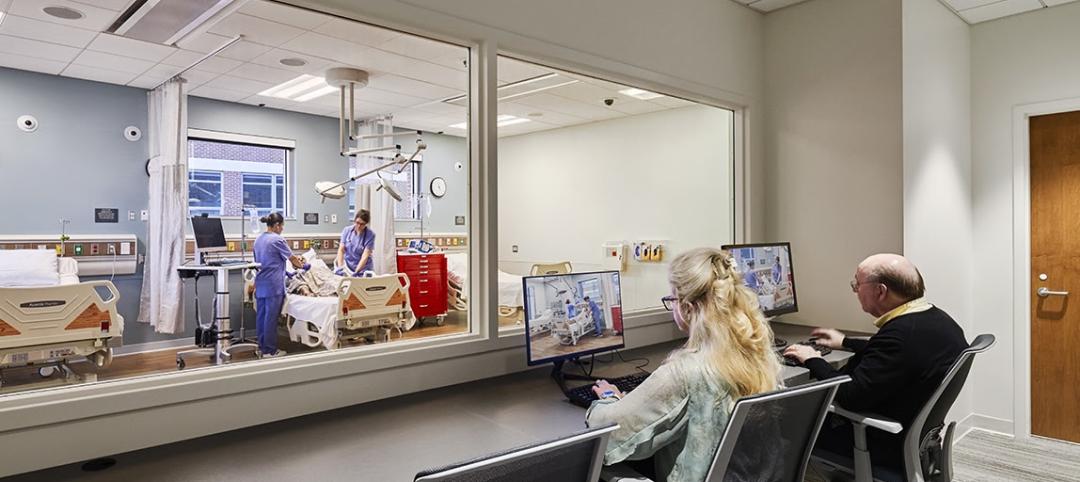“Green” construction in the U.S. has mostly been on a fad diet – one where trimming energy consumption is focused on the present but not the long run. That is the conclusion that New York-based nonprofit Urban Green Council found in their research on “high cholesterol buildings.”
The research is aptly named because how many buildings are insulated today focus more on how aesthetically pleasing the building will look, and all the green technology is clustered into what HVAC and other mechanical systems will the building be equipped with.
One example of such a trade-off of aesthetics and actual sustainability is in the selection of a building’s envelope: subpar walls, windows and roofs. “Unlike mechanical systems like air conditioners and ventilation fans, a building’s envelope is one of its longest-lasting components,” the report says.
A curtain wall made out of, say, glass, a notoriously poor insulator, has been a popular material to design and construct a building. The final building with all floor-to-ceiling windows, as the report boldly says, is as poorly insulated as a building from over a millennium ago.
However, the envelope of a building outlives all the other components; as lighting and HVAC systems are replaced with new, more efficient ones, a poorly insulated envelope will drag down the building’s potential of being at its most energy-efficient (see chart below).
The research pushes for loopholes in building codes to be closed. Currently, most green standards focus more on reduction of net energy consumption, hence, they make a trade-off where “they add more glass and make up for it with superior mechanical systems,” because floor-to-ceiling windows are a great selling or renting point and are in high demand.
Other recommendations the Council makes are for better glass, better design, and better training of contractors and subcontractors to stress on air sealing and elimination of thermal breaks.
The full report can be read in PDF here.
Related Stories
Office Buildings | May 20, 2024
10 spaces that are no longer optional to create a great workplace
Amenities are no longer optional. The new role of the office is not only a place to get work done, but to provide a mix of work experiences for employees.
Mass Timber | May 17, 2024
Charlotte's new multifamily mid-rise will feature exposed mass timber
Construction recently kicked off for Oxbow, a multifamily community in Charlotte’s The Mill District. The $97.8 million project, consisting of 389 rental units and 14,300 sf of commercial space, sits on 4.3 acres that formerly housed four commercial buildings. The street-level retail is designed for boutiques, coffee shops, and other neighborhood services.
Construction Costs | May 16, 2024
New download: BD+C's May 2024 Market Intelligence Report
Building Design+Construction's monthly Market Intelligence Report offers a snapshot of the health of the U.S. building construction industry, including the commercial, multifamily, institutional, and industrial building sectors. This report tracks the latest metrics related to construction spending, demand for design services, contractor backlogs, and material price trends.
K-12 Schools | May 15, 2024
A new Alabama high school supports hands-on, collaborative, and diverse learning
In Gulf Shores, a city on Alabama’s Gulf Coast, a new $137 million high school broke ground in late April and is expected to open in the fall of 2026. Designed by DLR Group and Goodwyn Mills Cawood, the 287,000-sf Gulf Shores High School will offer cutting-edge facilities and hands-on learning opportunities.
Adaptive Reuse | May 15, 2024
Modular adaptive reuse of parking structure grants future flexibility
The shift away from excessive parking requirements aligns with a broader movement, encouraging development of more sustainable and affordable housing.
Affordable Housing | May 14, 2024
Brooklyn's colorful new affordable housing project includes retail, public spaces
A new affordable housing development located in the fastest growing section of Brooklyn, N.Y., where over half the population lives below the poverty line, transformed a long vacant lot into a community asset. The Van Sinderen Plaza project consists of a newly constructed pair of seven-story buildings totaling 193,665 sf, including 130 affordable units.
K-12 Schools | May 13, 2024
S.M.A.R.T. campus combines 3 schools on one site
From the start of the design process for Santa Clara Unified School District’s new preK-12 campus, discussions moved beyond brick-and-mortar to focus on envisioning the future of education in Silicon Valley.
University Buildings | May 10, 2024
UNC Chapel Hill’s new medical education building offers seminar rooms and midsize classrooms—and notably, no lecture halls
The University of North Carolina at Chapel Hill has unveiled a new medical education building, Roper Hall. Designed by The S/L/A/M Collaborative (SLAM) and Flad Architects, the UNC School of Medicine’s new building intends to train new generations of physicians through dynamic and active modes of learning.
Sustainability | May 10, 2024
Perkins&Will’s first ESG report discloses operational performance data across key metrics
Perkins&Will recently released its first ESG report that discloses the firm’s operational performance data across key metrics and assesses its strengths and opportunities.
MFPRO+ News | May 10, 2024
HUD strengthens flood protection rules for new and rebuilt residential buildings
The U.S. Department of Housing and Urban Development (HUD) issued more stringent flood protection requirements for new and rebuilt homes that are developed with, or financed with, federal funds. The rule strengthens standards by increasing elevations and flood-proofing requirements of new properties in areas at risk of flooding.


